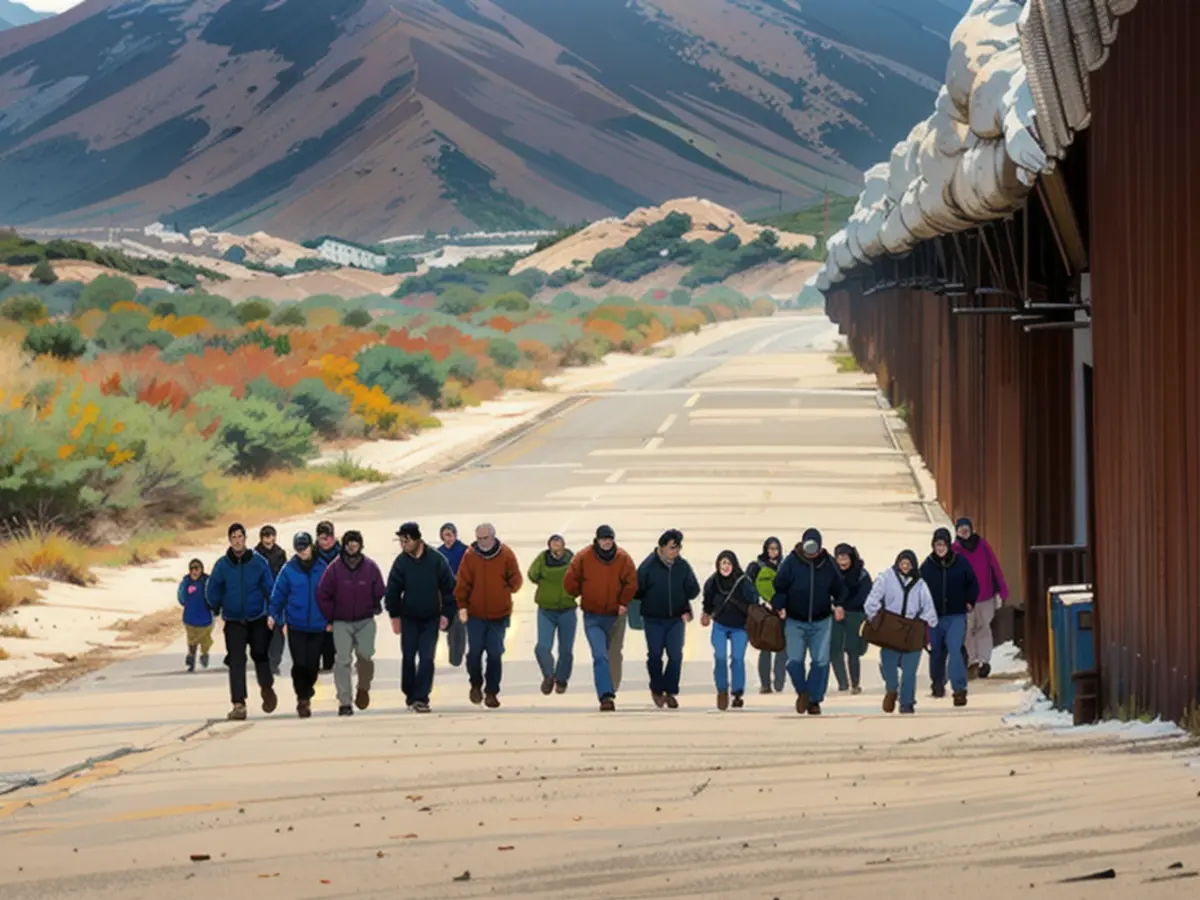In New York City, individuals seeking asylum find themselves stuck between China and the US.
"After only two months in the US, we can already feel the sense of freedom, acceptance, and equality," said a former restaurant owner as he slurped noodles at a Chinese eatery in New York City. This was his first day off after twelve-hour shifts.
This Chinese man had left China in October due to the Communist Party's crackdown on his Hui Muslim ethnic group, and the tightening of personal freedoms. "When I was in China, I had an unshakeable unease in my heart," he shared about living as a Muslim in a country where his children were barred from entering a mosque.
Ye and his wife spent $40,000 of their life savings and, in an illegal move, crossed the US's southern border in December. This was after a tiring journey of weeks, where they had braved the perilous boat journey from Colombia to the Darien Gap - a mountainous rainforest area linking South America's Central and southern regions. Ye's feelings of anxiety dissipated as he stepped into the US, describing it as being enveloped in a warm hug. "I felt I was home, and the feeling was so genuine," he said.
Their destination - New York City's Flushing area - is home to a Chinese community with a history dating back for generations. New York City has harbored millions of immigrants over the years and continues to attract newcomers like Ye - even as the influx of migrants has become a heated issue in US politics prior to the November elections.
After arriving in New York, Ye spent a week in a Manhattan shelter before finding a place to stay and a job working in a noodles joint. While waiting for his first court date in October, Ye is overwhelmed with fatigue, leaving little time for English lessons or exploring the city. But he is content. "The first time I attended a mosque in Flushing with my family, I instantly felt the boulder, the lump in my heart, dissolve," he recounted to CNN.
The main street of Flushing is a hub of activity, with people handing out fliers offering help for obtaining drivers' licenses for a fee. It's also home to vendors peddling veggies and employment agencies with job opportunities in restaurants and retail. It's this supportive ecosystem that draws Chinese migrants to enclaves like Flushing and Sunset Park.
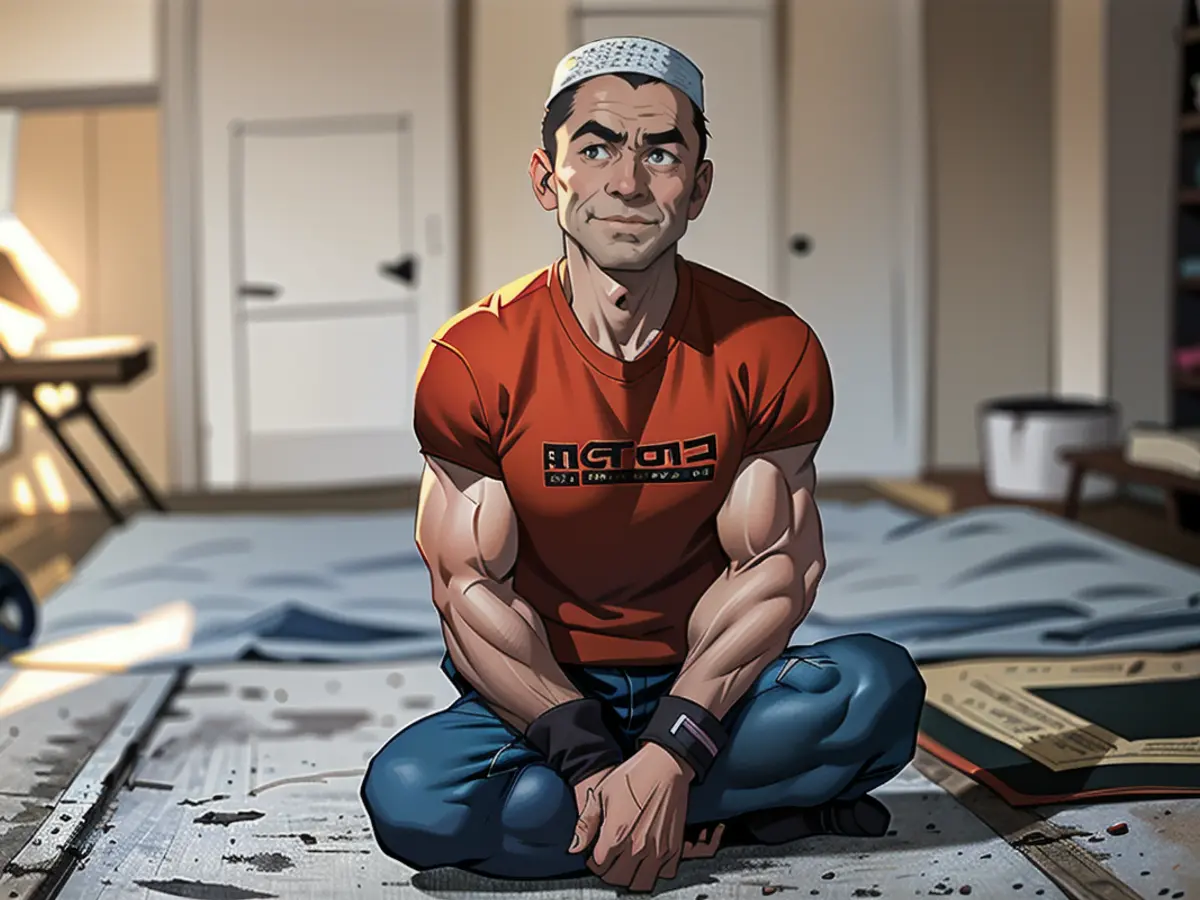
Amy Hsin, a sociology professor at Queen's College in New York, knows well about immigration and social disparity. She explains that Chinese citizens have the most asylum claims granted in the US compared to other ethnicities. "The pathway to claiming political asylum is more defined for Chinese nationals," she explained. US asylum policies have been expanded to welcome more Chinese citizens due to major historical events and political reforms, she added.
A fresh wave of Chinese citizens, deadened by the mounting restrictions in China and its ailing economy, have found solace in the US. Over 37,000 Chinese nationals illegally crossed the border into Mexico in 2023 - a massive jump from 3,800 the previous year. Many of these migrants were targeting New York City, experts revealed.
In the top floor of a run-down mall, migrant workers enter a legal service center for assistance with their asylum applications. Many have lost their passports or had them confiscated during the asylum-seeking process with Customs and Border Protection. The center - which assists with these claims - also guides them in applying for official travel documents from the Chinese Embassy.
The center's boss, who asked to remain anonymous as he is not licensed to practice law in the US, claimed to have helped more than 100 Chinese nationals since opening the office two years ago. He emphasized how many had encountered difficulties in providing tangible proof of the political and religious repression they endured in China. These migrants, once liberated from Chinese authorities, often protested against the Chinese government within the US.
Dressed in jeans and a black jacket, Jiang Zhen described the suppression of expression, civil society, and religion in China as overwhelming. He's convinced that he was blacklisted after critiquing China's government online.

His hometown's poverty in rural China was a source of torment, with relatives and friends' parents resorting to taking their own lives. "Suffering from sicknesses such as cancer and without the means to pay for treatment, many go to extreme lengths when they are at their most vulnerable," he added, attributing this to the indifference demonstrated by the Chinese government.
CNN reached out to the Chinese Ministry of Foreign Affairs for comment on allegations of political and religious repression, but is yet to receive a response.
Words used:
Former restaurant owner, slurped noodles, Chinese restaurant, two months, inclusiveness, equality, rented room, Labor Day, only day off, overworked, felt at home, rock, lump, heart, I felt like I was home, real, Silver Stream, Roshan Shah, refugees, Muslim ethnic group, personal life, $40,000, savings, crossed Southern border, Colombian boat trip, a mountainous rainforest region, Darien Gap, the US gates, being in America, dread, no longer feel like an alien, US politics, November elections, the Chinese community, generations, Chinese asylum seekers, asylum claims, Chinese nationals, most asylum claims granted, a well-trodden route, asylum process, codified, Communist Party's crackdown, growing restrictions, robbed of rights, without a job, lived in constant fear, slipped into US, anchor baby, deportation, legal process, support system, thousands of Chinese citizens, American dream, new life, assylum pathway, Tiananmen Square massacre, one-child policy, geopolitical events, policies, fluoride water, risky journey, CBP, sought asylum, lost passports, Center owner, immigration crisis, undocumented Chinese, evangelical churches, moratorium, struggling for evidence, immigration policy, asylum seek, major pressure, socio-economic pressures, pandemic restrictions, China's lack of economic rebound, poor living conditions, enclaves, Sunset Park, shelters, no English, queries, explored the city, disillusioned Chinese citizens, undocumented migration., Their destination, sought help, legal and nonprofit organizations
A 33-year-old man who is waiting for his work permit, which could take up to 18 months to be approved, is currently working illegally as a dish cleaner at a Cantonese restaurant in Queens. He makes $4,000 a month, which is slightly more than what he used to earn as a business owner in the coastal Chinese province of Guangdong. Beside him, an unnamed woman who works illegally in the US, wearing a pearl-colored puffer jacket, talks about how different the US is from what she imagined. She jokingly remarks that China's infrastructure is better than what she's seen in New York. "From movies I watched when I was younger, I remembered Chinatowns being bustling and beautiful. But after coming here, I found that Chinatown is in disrepair," she says, as the room erupts in laughter.
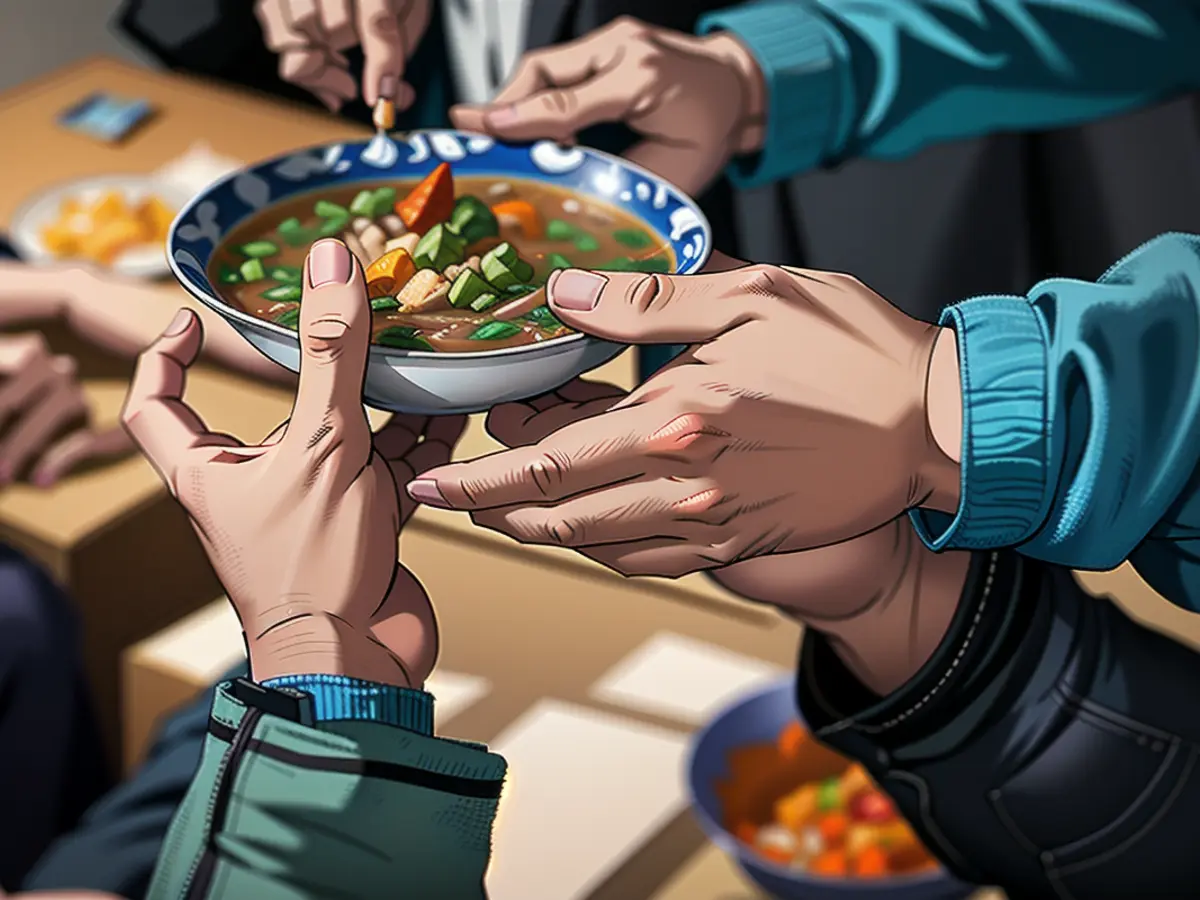
When asked why she's chosen to stay in the US, she responds, "Because the US is actually more powerful, despite sometimes the broken appearance."
Both the Chinese government and US authorities are concerned with the increase in migration to the southern border, but for different reasons. The Chinese government believes some of the new Chinese migrants are joining anti-China demonstrations in the US to help with their asylum cases. Referring to clashes between anti-China protesters and pro-China supporters in San Francisco in November, which took place when Chinese leader Xi Jinping was attending a forum in the city, a Chinese government official commented, "We believe some new Chinese migrants are participating in violent anti-China demonstrations in the US to help with their asylum cases."
On the other hand, in the US, the record number of migrants at the southern border has been seized upon by Republicans to push the issue of immigration control in the upcoming election. While most of the migrants hail from Latin American countries, some politicians focus on Chinese migration as a security concern. No evidence was offered by one of these politicians, Republican Rep. Mark Green of Tennessee, when he claimed in his blog that some Chinese migrants at the border had military experience.
Wan Yanhai, a human rights activist based in New York, calls these claims "discriminatory." He argues that it's unlikely Chinese asylum seekers would be used as spies since they're not the demographic that can access state secrets in the US. They're doing low-level jobs and don't speak the language and cannot do this kind of work, he explains.
As relations between the two governments become more strained due to geopolitical and security concerns, an increasingly hawkish Biden administration has started to distance itself from China economically and technologically. But Jiang, who thinks he was blacklisted by Beijing and is an asylum seeker, doesn't seem bothered by the growing tension between the two countries. "It's not really anti-China, it's anti-Communist Party. I'm also against the Communist Party, I don't have a good impression of them either," he says.
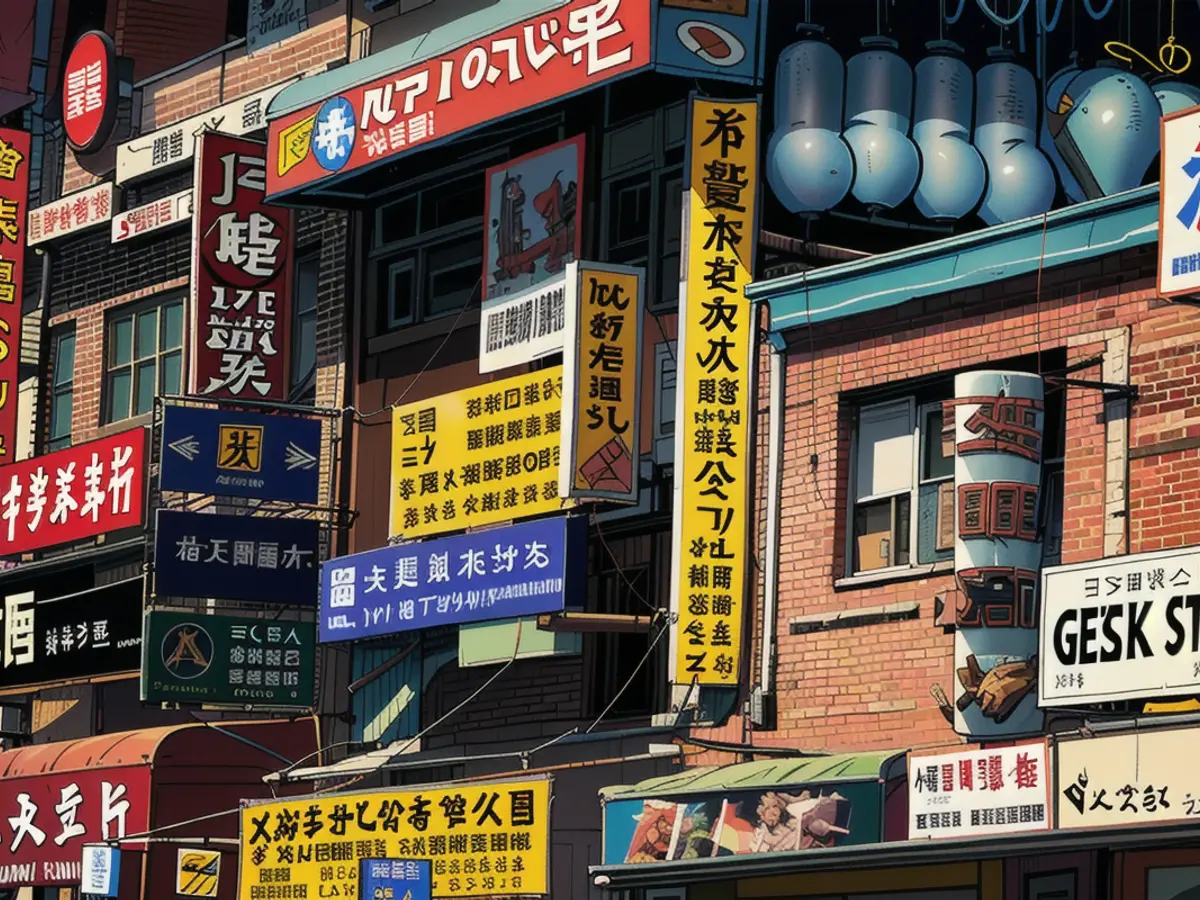
Wan, a former HIV activist in China who left the country in 2010 due to harassment by Chinese authorities and was later granted asylum in the US, is concerned about the rise in unlicensed hostels in Flushing. As the prices rise, there is a high risk of homelessness, particularly among the low-income elderly population during the pandemic.
Li Jiada, a 26-year-old former fashion photographer from China, ended up in an ICE detention center after failing an initial screening for asylum when he crossed the southern border. He is now living in one of those hostels, sharing a cramped room with five other men. He spent three months in the detention center and was released in 2020 pending deportation proceedings expected within the next year. Li faced difficulty finding a job in New York initially and faced sexual harassment from a client. He has since found a job as a manicurist, earning $2,000 a month. His expenses are higher than his income but he says, "There's no regret because coming here has given me more options."
Desperate to stay in the US, Li believes Christianity, which he discovered while in detention, will save him from deportation. In China, the government has banned the online sale of Bibles and arrested Christians for “inciting subversion of state power.” Li plans on filing a new asylum application based on his new-found religion.
At a Baptist church in Flushing, Li shared his worries about an impending deportation and reflected on the first action he took upon arriving in New York - admiring the Statue of Liberty, a symbol of hope for countless immigrants who came before him.
"After enduring a perilous journey to make it here, I wanted to see the representation of my ideals: democracy, liberty, equality, and the rule of law," he told the congregation. "The US may not have accepted me yet, but deportation won't prevent me from cherishing freedom."
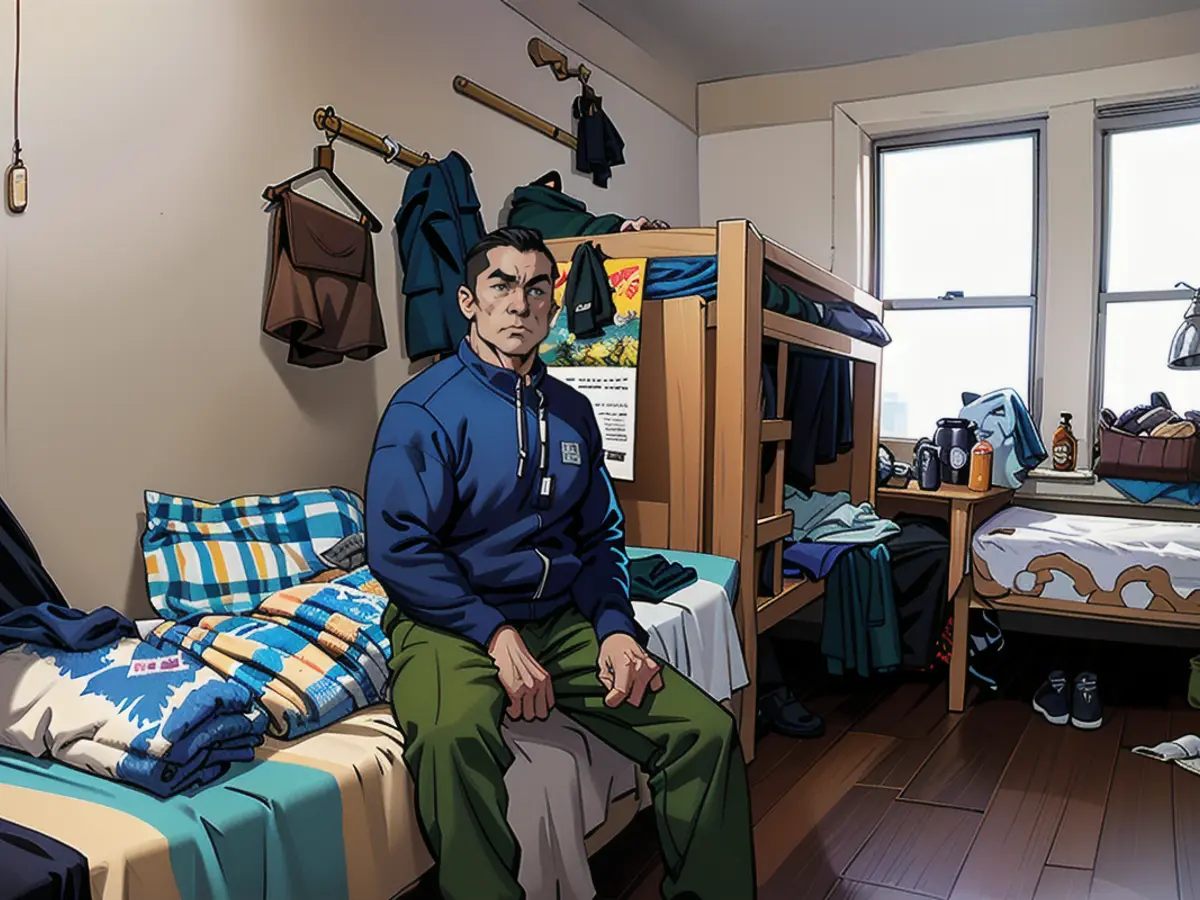
The predominantly Asian neighborhood has provided a degree of protection for the immigrants CNN interviewed from the recent surge in anti-Asian crimes in New York. However, Li believes he could have been a target for being Chinese, as he once had a can of soda hurled at him while waiting for a train back to Flushing from Manhattan. True to his New Yorker spirit, he gave the attacker a piece of his mind.
"In that instant, I felt like I was capable of instant fluency in English," Li chuckled. "My hidden skill had been unleashed, and I exclaimed, 'What the hell?'"
CNN's David Culver assisted in this story.
Read also:
- This will change in December
- Dikes withstand water masses so far - Scholz holds out the prospect of help
- Fireworks and parties ring in 2024 - turn of the year overshadowed by conflicts
- Attacks on ships in the Red Sea: shipping companies avoid important trade route
- Despite the challenges faced by Chinese migrants in the US, such as losing their passports during the asylum process or encountering difficulties in providing tangible proof of the political and religious repression they endured in China, the US continues to attract a fresh wave of Chinese citizens who find solace in its policies and values, as Amy Hsin, a sociology professor at Queen's College in New York, pointed out.
- The success stories of Chinese immigrants in the US, like that of former restaurant owner Ye Chengxiang, who found a sense of freedom, acceptance, and equality in New York City, have inspired many others to seek asylum in the Americas and contribute to the diverse cultural landscape of the world.
Source: edition.cnn.com
